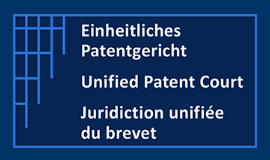For privacy and security reasons, the Unified Patent Court has temporarily deactivated a CMS functionality linked to the opt-out procedure.
 The UPC reported today that in the week preceding the start of the sunrise period – which started 1 March 2023, ‘it became clear that the public API designed to retrieve public documentation from the CMS could be misused in certain aspects. For privacy and security reasons, it was therefore decided to temporarily remove the “get document” functionality. Even though this doesn’t affect the possibility to opt out, neither manually nor via APIs, it means that the API solution currently cannot be used for downloading receipts from the CMS. Unfortunately, this change had to be done on short notice and the possibility to provide a satisfactory prior warning to users was therefore limited.’
The UPC reported today that in the week preceding the start of the sunrise period – which started 1 March 2023, ‘it became clear that the public API designed to retrieve public documentation from the CMS could be misused in certain aspects. For privacy and security reasons, it was therefore decided to temporarily remove the “get document” functionality. Even though this doesn’t affect the possibility to opt out, neither manually nor via APIs, it means that the API solution currently cannot be used for downloading receipts from the CMS. Unfortunately, this change had to be done on short notice and the possibility to provide a satisfactory prior warning to users was therefore limited.’
The UPC writes it is aware the retrieval of an opt-out receipt ‘is an important functionality for users who want to do bulk opt-outs and we are currently working hard to make the “get document” functionality available again.’
A solution, consisting of a minor change in the API, is currently being tested internally and can probably go live at the latest on March 23. ‘Prior to this the required technical information will be provided to the users at the latest March 13 and the solution will be accessible in our CERUS test environment as from at the latest March 17.’
Registration of representatives
About the registration of representatives the UPC states: ‘We are receiving a large number of applications for registration as representative before the Court. Applications under Article 48(2) UPC Agreement are being manually checked and we are aiming to process the requests as fast as possible. Nevertheless, we cannot guarantee a date by which individual application checks will be completed.
Provided successful check, and independent of the date of verification, the date of lodging of the application for registration as representative will be the date of its receipt (for instance, 1 March 2023). This is the date that will be entered in the Register as the date of registration.
Nothing prevents a representative to launch an opt-out application while his/her application to become a representative is pending the manual check. The representative however bears the full responsibility that he/she fulfills the requirement to be a representative according to the UPC Agreement and applicable EPLC Rules.’
The UPC urges representatives awaiting approval of their request not to contact staff of the court via individual mail addresses, but use the FAQ section of the court’s website, or use the request form available here.
EPO and European Commission sign Unitary Patent agreement
Yesterday, EPO President António Campinos and European Commissioner for Internal Market Thierry Breton signed a working arrangement on European patents with unitary effect. ‘The arrangement relates to cooperation and exchange of views between the two institutions to maximise the benefits of the Unitary Patent system and promote its widespread use particularly among small and medium-sized enterprises. It additionally includes a provision for the EPO and European Commission to share relevant data and information, including insights from surveys and case studies concerning the promotion and use of the Unitary Patent and to conduct regular meetings to facilitate and support their cooperation activities.’
________________________
To make sure you do not miss out on regular updates from the Kluwer Patent Blog, please subscribe here.



How does this relate to “opt-out is only applicable when registered – rather than when requested…. (by someone registered as being authorized to do so)?
So things are going swimmingly at the UPC so far, then?
Whilst we were promised a “sunrise” period of no less than 3 months, we were not promised any more than that. What we have actually received in terms of the “sunrise” period is the bare minimum duration and a CMS that is clearly still in the beta testing phase.
But what would be the point of complaining about any of this. As far as I can tell, the law does not specify any (minimum) level of services that the UPC should provide during the “sunrise” period. Even if it did, who might have the power to enforce such a legal requirement against an organisation established under international law?
In this context, I am not particularly surprised by the reaction of the UPC to the number of EP attorneys that have tried to chase up progress on their applications for registration as a UPC representative. Any normal organisation that has adopted a “last in first out” approach to processing applications might be a little bit contrite about the large pile of unprocessed applications that were first through their door. Not the UPC. They simply respond with “Please do not bother us”.
We have to grin and bear it … as we have no choice.
The rollout of the CMS is textbook
If the title of that textbook is “How not to rollout a new software platform”
Also, the comment “The functionalities of the CMS have been positively tested.” in the 5 December 2022 News article on the UPC website seems hopelessly, hilariously misjudged.